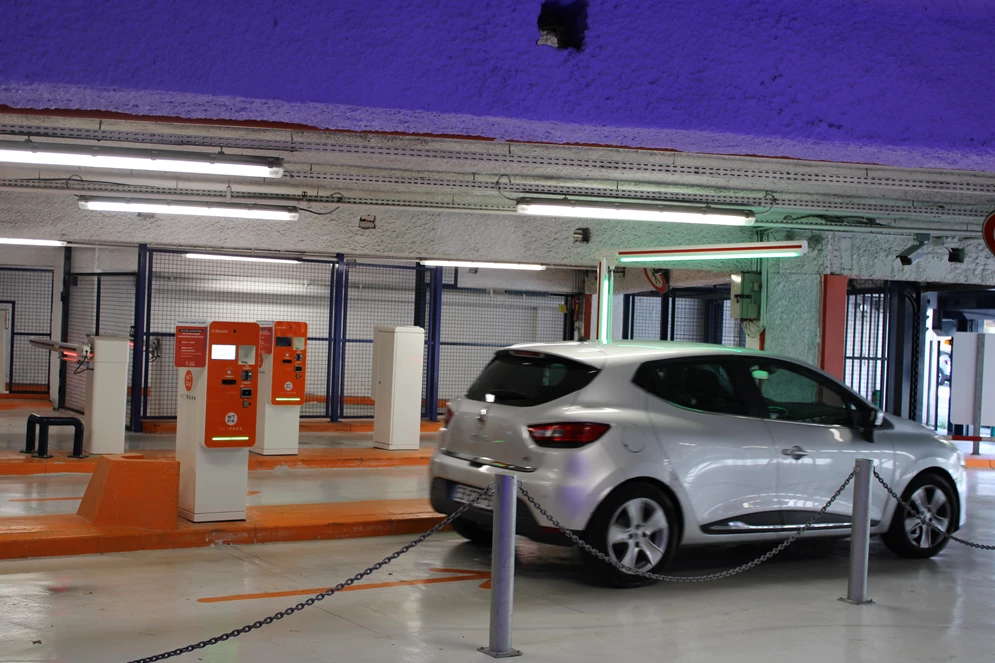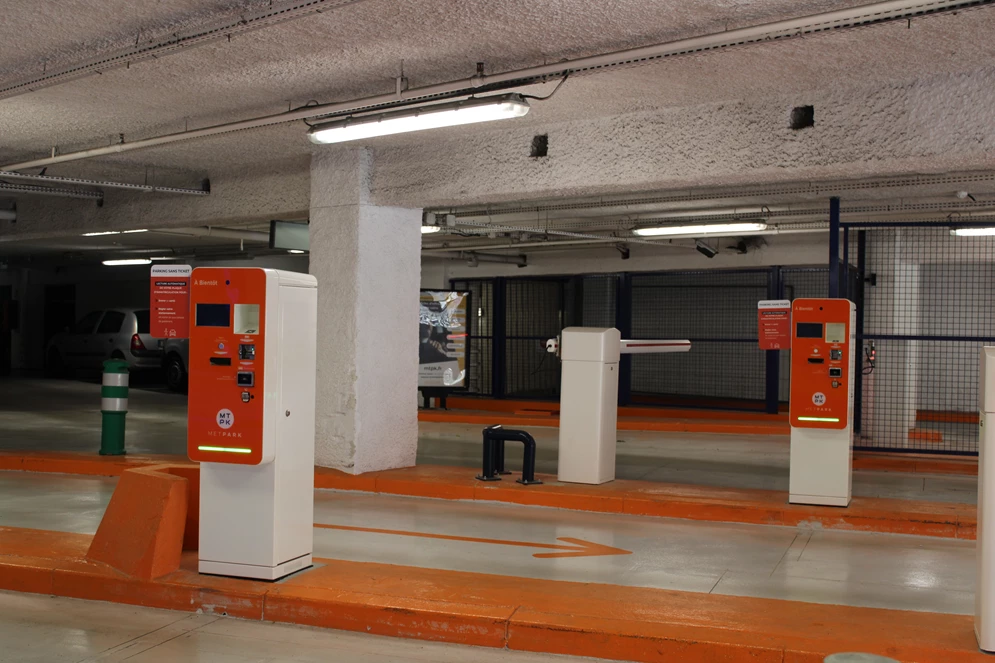Car parks are evolving into a true mobility hub—connected, multifunctional spaces, integrated into the mobility ecosystem. Through digitalization and new technologies, they will increasingly offer services designed to enhance the user experience and promote sustainable mobility with the integration of electric charging and soft mobility.
To learn more about this transformation, we spoke with Kenza Joual, Product Line Manager for the Parking business at Hitachi Rail. She shares her mission, current innovations, and the strategic role that parking will play in the city of tomorrow.
What drew you to the parking industry?
I began my career in the automotive sector, working as a project manager on embedded software for all types of vehicles, including electric and hybrid models. At one point, I wanted to give my career a new direction, with a stronger focus on product strategy.
The parking sector seemed particularly interesting to me because it is undergoing a major transformation, particularly thanks to digitalization. It is increasingly being integrated into broader mobility initiatives.
This role at Hitachi Rail has allowed me to work on various aspects of the product and on the strategic design of innovative parking solutions. My goal is to bring value to the sector with products that meet the challenges of smart and sustainable mobility.
How are digitalization and next-generation technologies transforming parking?
Digitalization and emerging technologies play a central role in transforming urban mobility systems. They enable smoother user journeys, more sustainable and secure mobility, and, above all, mobility that is more focused on user needs.
In the parking sector, digitalization allows parking to be integrated into Mobility as a Service (MaaS) project, transforming simple parking into a strategic link in the mobility chain.

What are the latest innovations Hitachi is working on?
We have developed a license plate recognition solution using artificial intelligence, achieving excellent performance. Beyond simply reading license plates, these cameras can also identify vehicles by category, color or brand , which enhances security by preventing more fraud.
We are also working on integrating electric vehicle (EV) charging into car parks through a solution that unifies and simplifies access and payment for parking and electric charging, enhancing user experience.
What role will the parking sector play in the coming years?
Parking is becoming a dynamic spaces, going far beyond it original parking function. It will increasingly integrate additional services that will make users' daily lives easier and contribute to sustainable mobility.
We can imagine car parks evolving into full-service hubs offering EV charging, car washing, bike or scooter repair and rental, and more.
These hubs would provide easy access to other modes of transportation, helping to reduce urban congestion and improve quality of life in city centers. Parking will become an enabler of multimodal mobility.

What digital trends will shape the future of parking?
In the coming years, parking will continue to evolve to support the changes in the smart city and smart mobility. It will have this hub aspect that will connect parking and cities, with simple access and integration into mobility applications.
To achieve this, parking must be fully integrated into MaaS platforms—positioned as a mobility service in itself— enabling users to book everything through a single app.
Dynamic pricing will also be a key trend. It will allow operators to adjust prices based on demand or offer more attractive rates in suburban areas, helping reduce congestion in city centers.
Artificial intelligence will play a key role, particularly in optimizing services, personalizing the user experience and developing decision-making tools for parking operators.
What are the key skills needed in this sector today?
Professionals in the sector must combine technological skills (such as data analysis or AI) with customer focus.
They must also understand the key issues and policies related to sustainable mobility, to be able to integrate parking solutions into a comprehensive vision of the smart city.
Understanding the major trends in mobility and technology is crucial for defining the product vision and ensuring that the parking of tomorrow supports changes in the sector and meets user needs.
What kind of approach will be necessary to make this vision of parking as a mobility hub a reality?
Undoubtedly, a collaborative approach. As car parks evolve into multifunctional spaces with integrated services, it will be necessary to collaborate with all stakeholders in the mobility ecosystem to maintain a comprehensive vision. This means innovating, adopting an agile approach and remaining attentive to technological developments—particularly in the automotive sector— to offer appropriate solutions. It is essential to take into account the concepts of MaaS and the smart cities, and their evolutions, in order to position parking as a central component of this ecosystem.


